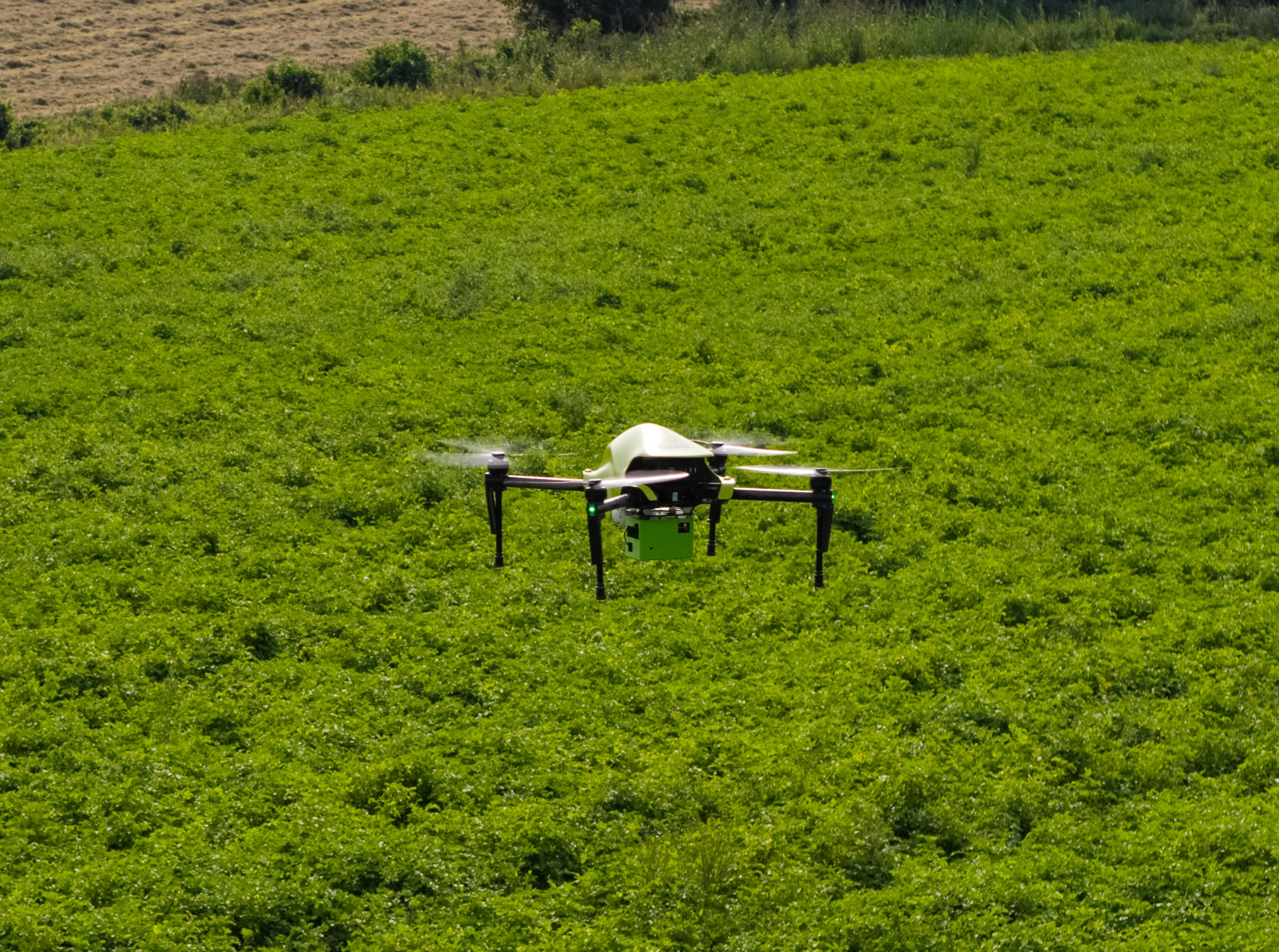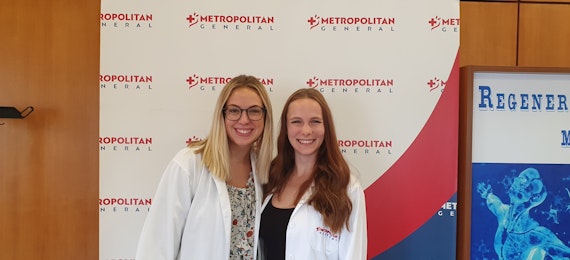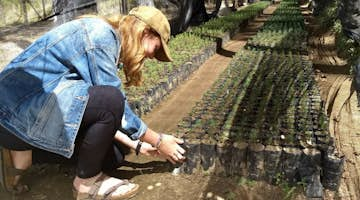
European Agricultural Research & Development
This remote Agricultural Research and Development internship is the perfect opportunity for those looking to learn about modern agriculture techniques, sustainable food production, biodiversity, spatial analysis of farmland, and the environmental impact of agriculture. Remote interns contribute to the development of agricultural management support systems for a changing climate, focusing on the effects of drought and water management.
What to expect from your European Agricultural Research & Development internship:
- Learn technical modern research techniques in specific areas of agriculture
- Understand the modern state of farming and sustainable agriculture
- Gain international experience while interning remotely from home without having to travel
Your internship abroad host organization:
- SMEs, operating out of Greece, Netherlands and Poland
- Agricultural Technical Consultancies
Internship details
This remote Agricultural Research & Development internship is the perfect opportunity for those looking to learn about modern agriculture techniques, sustainable food production, biodiversity, spatial analysis of farmland, and the environmental impact of agriculture. Remote interns contribute to the development of agricultural management support systems for a changing climate, focusing on the effects of drought and water management.
This is a remote internship you can conduct from home. Click here to view our Environmental Science internships that you can do in-country, if you’d prefer to travel and intern abroad.
The agriculture industry is going through massive changes as it becomes more sustainable and reduces its impact on the environment. On this remote internship in European Agricultural Research & Development, you’ll gain a modern understanding of how to mitigate the effects of farming and be involved in developing new solutions and systems that can influence the future of the industry.
Remote interns are matched with SMEs, which can operate out of Greece, the Netherlands and Poland. These companies conduct research and development projects for farmland , helping to analyze land, provide feedback on farming techniques and implement modern farming solutions.
The host organizations deliver a wide range of services ranging from applied R&D for sustainable food production systems (e.g. agroecology, organic farming, integrated agriculture), the environmental impact of agriculture, vocational training, innovative support for producers, precision agriculture and smart farming services, using geospatial technology.
Your main tasks on this virtual agriculture internship will be related to spatial analysis, by means of Geographical Information Systems (GIS) and associated tools (QGIS or Google Earth Pro), as well as processing or analyzing raw biodiversity data.
You will also be able to conduct a systematic review of scientific literature on agricultural and environmental themes, with extraction of information and data. This means you’ll learn conclusions and lessons from the very latest studies, and contribute to developing an inventory of modern literature across a range of specific topics and disciplines.
If you’re interested in a career in farming or agriculture research, this internship will give you real-world experience in contemporary techniques such as GIS and landscape analysis, and spatial analysis of agricultural landscapes. You will gain experience on a hot agro-environmental topic, most wanted by related employers!
Remote interns will be in regular contact with your in-country supervisor via video and email. In all cases, interns should expect that the initial phase of their remote internship will focus on gaining some introductory knowledge. You may start by gaining an understanding or overview of what you can build upon, develop, learn, and contribute. Ensure that you ask questions and provide feedback during the introductory period, so that your supervisor understands how you’re progressing. This will help them to better understand important details, such as how quickly you learn, what you find challenging, what you find interesting, etc.
Understand and expect that individual internship experiences vary. Therefore, if you’re at a more introductory level, you should reasonably expect a more introductory internship. Likewise, if you’re interning for a shorter duration, you will have a different experience from someone who is interning for a longer duration. Placement preferences are considered but always subject to availability.
What are the career benefits of interning abroad as a European Agricultural Research & Development Intern?
European Agricultural Research & Development interns learn from a qualified and experienced supervisor, and can be involved in:
-
Researching heat stress, drought stress, and fertilizing experiments on maize, grass and wheat (including online field visits).
-
Data exploration and processing (using proper satellite images and other data and/or knowledge).
-
Conducting online interviews / questionnaires with farmers.
-
Building / working with prediction algorithms, integrating remote sensing (satellite, drone) data, GIS data and expert knowledge.
-
Forming an online knowledge portal and/or WiKi with proper interfaces to allow effective use by farmers and intended users.
-
Agricultural drought monitoring (such as severity, location, frequency, and duration) using remote sensing (including drone) data and GIS-based information.
-
Drought stress and heat stress pattern classification and feature extraction using satellite and drone images, crop calendar, soil and planting management.
-
Satellite and drone data result integration and comparison.
-
Assessment of results and discussion, recommendation and report generation.
Professional development opportunities:
-
Learn how satellite remote sensing (including drone) images are used to map maize, grass, and wheat drought effects
-
Gain professional experience with small/medium enterprises, demonstrating your ability to work remotely and independently
-
Apply and integrate academic knowledge and skills gained from the program experience
-
Gain practical skills and boost your employability, with guidance from RISEWAY’s Experiential Learning Curriculum to support your learning and cultural intelligence.
Are you eligible for this internship?
Submit a free application so we can confirm your eligibility and check availability for your preferred dates.
Not sure which program to join?
What recent European Agricultural Research & Development interns said about their experience
This internship was helpful in learning remote sensing and techniques with QGIS. I appreciated how helpful my coordinators were.
I have learnt so much about how to measure and assess different types of stress in crops, such as weeds or drought. This will help with my long-term goals of having a career in sustainability, whether that be sustainable resources or water management, or even climate sustainability. The hands-on research I have done with software will allow me to better understand other versions of software that may be used when I begin my career, and will also allow me to suggest new methods of GIS assessments. The role I had in my internship was to research, learn, and use different software and sites and then write a report on whether they are worth using, their costs and benefits, their ease of use, and how they aided end-users. This role benefited the organization as it allowed for other employees to work with clients more efficiently and could potentially lead to them adopting software that will allow them to communicate with their clients and collate data more efficiently. I feel more empowered in my field because I have gained a lot more of an understanding in researching software that will be relevant to my future career plans, and I now know what may be expected of me when researching and writing professional reports on the relevant software and the data they generate.
My internship experience was academically stimulating and exciting. I greatly enjoyed meeting with my supervisor, as he was very welcoming, thorough with instructional details, and well versed in his profession. One of the most memorable aspects of the internship were the readings assigned for me to study before starting my first task because the material was both engaging and relevant. The tasks and expectations exceeded what I had imagined as they fit perfectly into my skill set and area of study. My expectations were exceeded as I have not only learned more about Olive crops in Crete, Greece but about Olive farming globally. As I conducted my literature review, I learned more about the edge effect and the importance of understanding and reshaping land management use.
During this internship, I did land use analysis of different sites in Crete, Greece, using Google Earth Pro. My role was to identify and outline patches of various land uses such as olives, arable land, settlements, semi-natural habitat, water bodies, and other crops. Each site has a radius of 300m and 500m, and I had to identify all the patches within these areas. I am learning how this information can be applied, as the information will be used to assess how different biodiversity indices vary with land use. This requires attention to detail, which is a very useful skill to have for any career path I choose. My goal with this internship is to learn about the real world applications of landscape analysis and GIS, which is what my current internship role is helping me achieve. This will give me a better understanding of how landscape analysis can be used to achieve sustainability in food production, which is what I might want to work in in the future.
To read all reviews, visit our reviews page.

Academic credit available for all internships
Get course credit from your college or university while completing your internship abroad or a remote internship program. It's a great way to meet your academic requirements and gain valuable experience at the same time.
Learn about course creditProgram fees
It's free to apply for this internship. Once we have reviewed your suitability and accepted you onto this program, a deposit of US$499 is required to confirm your place. The remaining balance (minus your initial US$499 deposit) will be due within 7 days of being assigned a placement.
Duration |
Program Fee |
|---|---|
| 100 hours (3 weeks full time, or 5 weeks part time) | $1,099 |
| 250 hours (8 weeks full time, or 12 weeks part time) | $1,499 |
| 350 hours (13 weeks full time, or 17 weeks part time) | $1,799 |
- Dedicated support before, during, and after your internship
- Sourcing and securing your internship placement
- Personalization of your internship plan
- Orientation and coaching with your supervisor
- Documented portfolio of your experiential learnings
- Academic credit facilitation
- International reference letter
- Certificate of Internship Completion
- A deposit of $499 (approximately 499) is required to secure your internship
- Balance of your Program Fee is due 7 days before your internship start date. The Program Fee payment can also be completed in installments through our Zero-Fee Payment Plan. Learn more.
- All payments attract a 5% transaction fee to cover international banking fees and currency charges.
- International wire transfer payments attract a minimum fee of $75 USD.
- Terms and Conditions apply.









